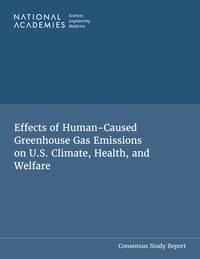The Case Against Sulking
States will only lose out if they refuse to cooperate with the Clean Power Plan.
Mitch McConnell has urged states to refuse to submit plans if the Clean Power Plan is upheld by the Court. He has been accused of inciting lawless behavior on the part of state governments. Let me come to his defense on this. (How often do I get to do that??) The states are under no legal obligation to submit plans. The Clean Air Act does not require them to do so. Coercing states to administer a federal regulatory program would violate the Constitution, at least as the current Court sees things. So there’s nothing illegitimate about McConnell exercising his American right of free speech and advising them what to do. The fact that he’s doing so presumably reflects his own inability as the leader of the Senate to do anything about it.
As it said, this is completely legitimate advice. But it’s also very bad advice. Assuming the courts uphold the EPA regulation, states have three choices:refuse to submit a state plan, submit a bad faith plan that tries to game the system, or submit a good faith plan. The first option is the one that McConnell recommends. The problem is that EPA is already developing a template so it can step in with a federal plan. In some contexts, the threat to impose a federal plan is a hollow threat because EPA doesn’t have the resource needed. But given a template, and the relatively small number of power plans in any one state, it really shouldn’t be that hard. It’s probably not EPA’s first choice, but it’s by no means an empty threat. And some experts predict much higher electricity prices in states that choose to follow that option.
The second option is bad faith compliance. As it turns out, there are ways of designing a plan that could actually increase greenhouse gases by allowing a state to claim more of the electricity market. That probably sounds pretty good to some of the states. But a new paper from Resources for the Future shows that states that are cooperating in good faith can defeat this strategy if they’re smart. So this looks like it’s not going to work either.
The final option is to comply in good faith. States that do so are probably not going to find the price to be as high as they’re afraid. And they’ll probably get cleaner air for their troubles, because cutting greenhouse gases generally means reducing other nasty pollutants as well. They may also save their consumer’s some money, since EPA is urging the use of energy efficiency measures that typically cover their own costs and more.
In short, as adults are supposed to have learned, there’s no point in sulking and threatening to take your ball home if you don’t get your way. If the EPA plan is upheld, the smart thing for states to do is to get with the program.
Reader Comments
3 Replies to “The Case Against Sulking”
Comments are closed.







Dan,
The great State of Texas has actively opposed EPA mandates for years. Our businesses and industries rely on state-issued environmental permits which have been successfully defended in the courts. Our elected officials have effectively persuaded the EPA to “not mess with Texas.” Accordingly, our petrochemical industry is expanding with new chemical plants, pipelines, rail terminals and ports, in spite of the EPA.
The EPA is corrupt and cannot be trusted. Defying the EPA’s incompetence is a proven strategy that will work in other states, and this approach offers hope to good citizens throughout America.
BQRQ,
Your three points are: 1. EPA should not mess with Texas, based on the state’s successful legal strategy to date.
2. The Texas petrochemical industry is expanding with new chemical plants and chemical-transport infrastructure.
3. The EPA is corrupt, and thus can’t be trusted.
Three rebuttals: 1. A successful legal strategy is not proof that the EPA should not mess with Texas; this argument is not evidence-based since warming in the climate system is unequivocal, and such warming is true whether or not courts say so. 2. Expansion of the petrochemical industry is inconsistent with the need to reduce human influence on the climate system, which is true based on the combination of model simulations and the observed climate change. 3. If it were true that the EPA were corrupt, then the argument that they can’t be trusted would follow, but to say someone is corrupt is going to take more proof than these words endorsed with your four letters BQRQ. In other words, what does BQRQ know about EPA corruption? I, for one, have no idea what you are talking about.
Dan said;
“…….Mitch McConnell has urged states to refuse to submit plans if the Clean Power Plan is upheld by the Court…..”
Dear Dan,
The EPA has not yet finalized its proposed GHG regulations (Clean Power Plan) and it is quite possible that EPA may abandon this proposal altogether in the face of strong public and Congressional opposition. At this time, there is nothing for the Court to uphold. That is why we do not worry about this matter, and neither should you.